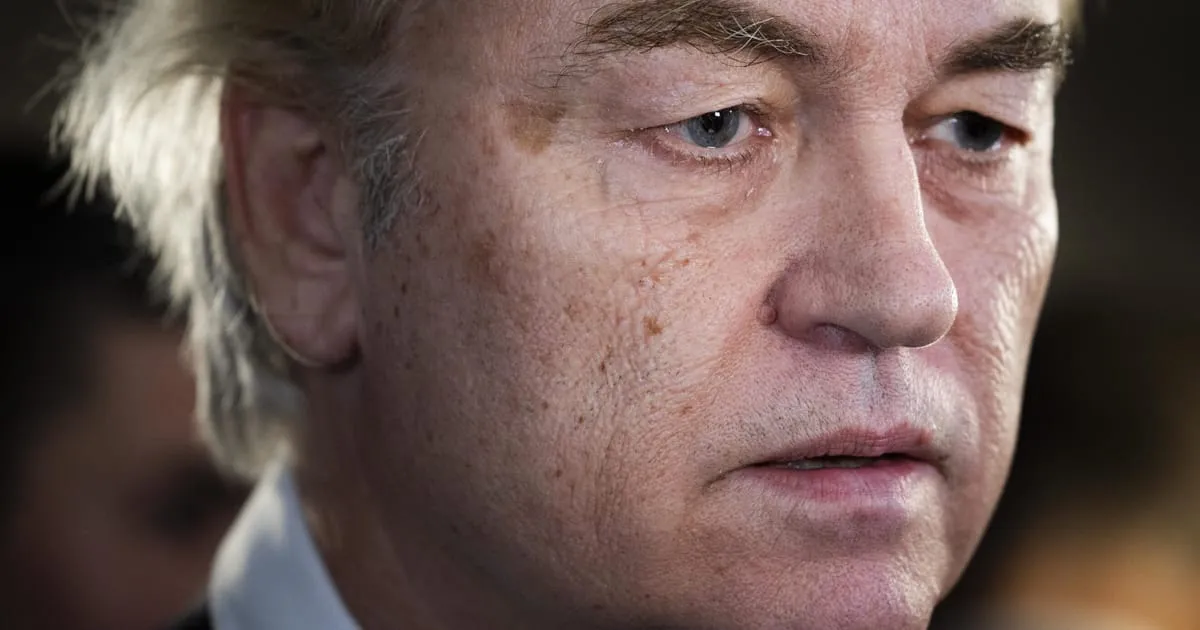
On Tuesday morning, Geert Wilders, the prominent figurehead of the far-right Party for Freedom (PVV), announced that his party would exit the coalition government in The Hague, plunging the Netherlands into political chaos. The decision came after a contentious disagreement over the government's stance on asylum policies. Wilders expressed his frustration on social media, stating, “No signature for our asylum plans. No changes to the coalition agreement. PVV is leaving the coalition.”
The Dutch government, which comprises Wilders’ PVV, the populist Farmer-Citizens Movement (BBB), the centrist New Social Contract (NSC), and the liberal People’s Party for Freedom and Democracy (VVD), had convened for emergency talks on Tuesday morning. These discussions aimed to address Wilders’ demands for more stringent asylum measures. Wilders insisted that his coalition partners agree to his “ten-point plan” on asylum, which included proposals to effectively close borders to asylum seekers.
Despite the urgency of the discussions, both Wilders and his coalition partners expressed skepticism about reaching an agreement. During a press conference, Wilders stated, “The PVV promised voters the strictest asylum policy ever.” When his partners declined to endorse the asylum plans, Wilders declared, “I had no choice but to say: We rescind support for this Cabinet.” He informed Prime Minister Dick Schoof of his decision to withdraw PVV ministers from the government, emphasizing his commitment to a strict asylum policy rather than the downfall of the Netherlands.
The announcement sparked immediate backlash from leaders of the other coalition parties. Caroline van der Plas, President of the BBB, criticized Wilders’ move as “irresponsible,” asserting that he was serving the interests of the Left by destabilizing the government. She expressed her disappointment on social media, stating, “whoever stops now, is offering The Netherlands to the Left on a silver platter.”
Nicolien van Vroonhoven from the NSC echoed this sentiment, stating, “This is really incomprehensible,” and criticized Wilders for not taking the time to consider the consequences of his actions. Meanwhile, VVD President Dilan Yeşilgöz accused Wilders of prioritizing his own interests over the welfare of the country during a time of significant uncertainty, arguing that the coalition was already committed to addressing asylum issues.
The current government, which is the first to include Wilders’ PVV, has been in place for less than a year following lengthy negotiations after the far-right party's unexpected victory in the November 2023 elections. Prime Minister Schoof, a civil servant, has faced ongoing challenges in maintaining stability within the coalition, particularly as Wilders has frequently criticized his leadership and the government's decisions.
Rob Jetten, President of the liberal D66 party, commented on the situation, indicating that if the collapse hadn’t occurred on Tuesday, it would have likely happened in the coming weeks. He criticized the government for its indecisiveness and frequent “squabbles,” claiming that the other coalition parties had been taken “hostage” by Wilders’ demands.
The collapse of the government comes at a critical time, just weeks before a crucial NATO summit scheduled to take place in The Hague, where allied nations are expected to discuss significant increases in defense spending. In light of the current situation, ministers are gathering to determine the next steps, with many anticipating that Prime Minister Schoof will offer his cabinet's resignation.
The political landscape of the Netherlands could undergo dramatic changes as a new election looms on the horizon. Both the BBB and NSC, which emerged as major victors in the November elections, have seen their popularity plummet, now polling at a mere 1 percent according to POLITICO’s Poll of Polls. Similarly, Wilders’ PVV, though still narrowly leading the polls, is also experiencing a decline from its previous election results.